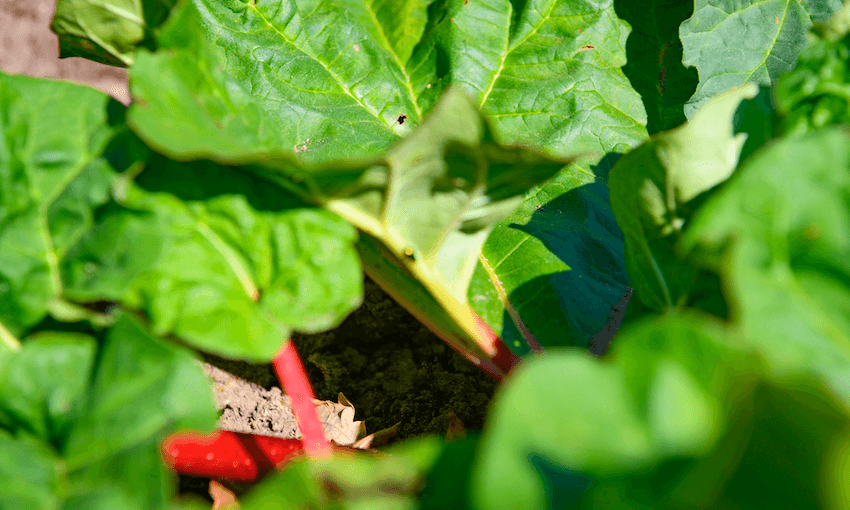In our new series The Lockdown Letters, some of New Zealand’s best writers tell us what they’ve been up to in the days of Covid-19 alert level four. Today, Ōtaki author Renée.
I have a wild tomato flopping all over the path down the back of the veg garden. I picked a tomato from it this morning. I only have a small garden but it’s very vigorous. Last night on RNZ Nights I heard a guy talking about someone in the Netherlands working out ways to turn the “treasure in our toilets” into phosphate fertiliser and I remembered when I was younger and lived next door to a guy who peed on his lemon tree and his rhubarb because, he said, it was good for them. Maybe he was ahead of the game? At the time I quickly planted some rhubarb of my own so I had a cast-iron excuse to decline his offer to “help myself to his rhubarb”.
This phrase became an in-joke between my sister and me. “Would you like to help yourself to my rhubarb?” she’d say, doing a very good evil leer then ruining it by laughing. Ah – sisters – she died when she was 60 and I was 63 and I miss her every damn day.
Friday I decided to make a bacon and egg pie using filo pastry from the freezer. A bit of a fiddle but it was delicious. Also baked some Anzac biscuits. I used to bake every Friday, same things every week. Anzac biscuits, peanut brownies, shortbread, a fruit loaf and a cake. I must have been mad but everyone took lunches in those days. Then the kids came home from school and wanted a biscuit… and a couple for their mates. Mandy Hager sent me a bread recipe that uses a can of beer instead of yeast and no kneading. Will do that this morning. I’m a Cancer, right?
A writer friend rang me to check how I was and we talked about re-reading our earlier works and what that was like. A mixture of pleasant surprise, irritation and, the inevitable, “For Christ’s sake, what was I thinking?” She reminded me of the time I told her to cut the first 10 chapters of the draft of a novel she’d given me to read. It took a wee while, she said, but she did it, started at chapter 11, used some of the bits from the first 10 in the next draft, scrapped the rest, book published.
I am so so sick of hearing people, radio hosts, online writers, commentators, using the term “the elderly”. It’s such a grey ghost of a term – it makes us “the other” and reveals, in some cases, a deep irritation that we need to be considered at all, that it’s probably a good thing if we’re all knocked off because we’re such a drain on the community purse and time.
The prime minister called us “older New Zealanders”, which means she sees us as part of the general population and not a group of outliers huddled on the edge somewhere. I like the word old, but a lot of my contemporaries aren’t so keen. I think they see being described as old as meaning they’ve joined a cohort they’ve always dreaded, whereas I see the word old as a stronger and more accurate (maybe more vigorous?) term than “the elderly”.
I’ve lived longer than any other female in my whānau ever, so have entered new territory. This is a place which has its ups and downs, is very interesting if sometimes irritating. The thing is, I know the eventual destination but I don’t have a map so I’m sort of making it up as I go along… with a lot of help from my friends…
Friends have shopped for me, stood in a queue to collect a prescription for me (queues right down the street from the pharmacy, all keeping a safe distance), and they have stood across the backyard and shouted to me and we’ve had some laughs. And they’ve found strawberries. “Take them,” I yelled, “I got seven at the weekend and six on Tuesday.”
“Just stop with the fucking skiting,” shouted my friend as she and a strawberry became one.
I want to give a big shout out to the Ōtaki Medical Centre and Hamish Barham Pharmacy – the medical and office staff, the pharmacists, their staff, and, comrades – let’s not forget the cleaners. They’re there doing their job, working while we’re sleeping, keeping us safe.
Tomorrow: Glenn Colquhoun
